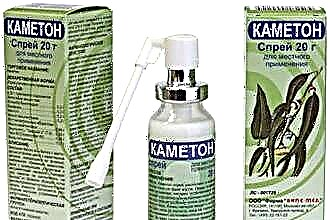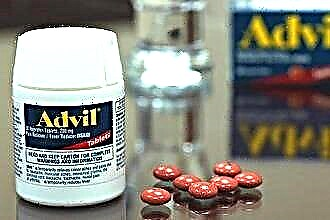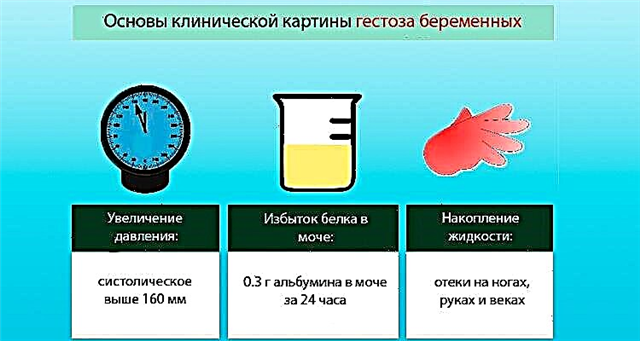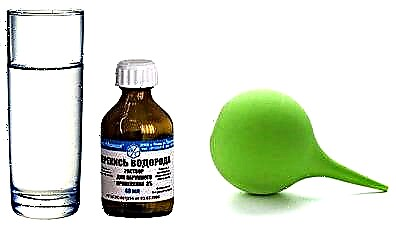The etiology of diseases accompanied by discomfort in the throat is associated with the development of bacterial, viral and fungal microorganisms. What should you do if your throat hurts and it hurts to swallow? Before taking medications, it is necessary to accurately establish the cause of inflammation of the mucous membranes of the ENT organs.
 Late treatment of infectious diseases often causes serious complications.
Late treatment of infectious diseases often causes serious complications.
Only a specialist can determine the type of infectious agent and the type of pathology after the patient has passed laboratory tests.
In most cases, to eliminate unpleasant symptoms, they resort to medication and physiotherapy.
Etiological factors
Severe sore throat when swallowing is due to the occurrence of catarrhal processes in the ciliated epithelium and lymphoid tissues of the pharynx. Penetrating deep into tissues, pathogenic agents begin to multiply actively. Their metabolites destroy healthy cells, which leads to the formation of foci of inflammation. Intense pathological processes in the ENT organs provoke irritation of pain receptors, as a result of which discomfort and sore throat occur.
One-sided pain in the pharynx indicates the location of the pathogenic flora. If a patient has a sore throat when swallowing, this may indicate the development of the following diseases:
- pharyngitis;
- laryngitis;
- paratonsillar abscess;
- laryngotracheitis;
- epiglottitis;
- diphtheria;
- streptococcal infection;
- lymphadenitis;
- scarlet fever;
- Infectious mononucleosis.
The nature of the causative agents of infection can be different, therefore, the principles of treatment for each of the above diseases will be very different. To destroy bacteria, antimicrobials are used, viruses - antiviral, fungi - antimycotic drugs.
Principles of pharmacotherapy
What means can be used to eliminate pain in the larynx when swallowing?
Despite the existing differences in etiological factors accompanying discomfort in the ENT organs, they are united by a common pathogenesis - the development of inflammatory processes.
The modern approach to the treatment of infectious diseases implies only complex therapy: palliative, etiotropic, pathogenetic. In the absence of severe complications, inflammation can be eliminated with local anti-inflammatory, antimicrobial and analgesic agents. For this, patients are advised to use antiseptic drugs, which quickly destroy the pathogenic flora and thereby relieve pain when swallowing.
The use of drugs for etiopathogenetic therapy helps to eliminate discomfort in the pharynx, which makes it possible to abandon the use of palliative therapy drugs aimed at relieving pain. Thus, it is possible to facilitate the course of ENT pathology and prevent the development of serious complications.
The scheme for the complex treatment of infectious diseases should be drawn up only by a specialist.
 Irrational use of antibiotics contributes to the development of dysbiosis, which negatively affects the body's resistance.
Irrational use of antibiotics contributes to the development of dysbiosis, which negatively affects the body's resistance.
Frequently encountered undesirable side reactions from self-medication include:
- gastropathy;
- Reye's syndrome;
- nephropathy;
- liver failure;
- hepatotoxic syndrome.
Phenolic antiseptics and preparations containing decamethoxin provoke kidney disease and hypersalivation.
Antiviral agents
A cutting pain in the throat when swallowing in most cases occurs as a result of viruses affecting the mucous membranes of the airways. It is possible to eliminate the pathogenic flora that causes pathological changes in tissues by means of antiviral agents. Some of them are designed to destroy pathogens, others prevent their reproduction, and still others stimulate the production of interferon in the body, which is involved in the process of destroying virions.
You can eliminate pain when swallowing by taking the following antiviral agents:
- "Remantadin" is an anti-viral chemotherapy drug that prevents the synthesis of virions and the further spread of pathogenic flora;
- Tamiflu is an inhibitor of viral neuromediase, which helps to reduce the number of pathogens in the foci of inflammation;
- "Zidovudine" is an antiviral agent that inhibits the replication of viral pathogens; accelerates the process of destruction of pathogens in the foci of inflammation, which promotes recovery;
- "Acyclovir" - an anti-viral agent with immunostimulating action, which destroys the herpes virus and DNA-containing virions;
- "Reaferon" is an immunostimulant that promotes the production of interferon in the body; increases local immunity, which stimulates the destruction of pathogens in the ciliated epithelium of the pharynx;
- "Arbidol" is an antiviral drug that inhibits the activity of influenza viruses; relieves inflammation and increases the body's resistance.
 Important! When treating bronchitis and acute respiratory viral infections, it is undesirable to use medications of synthetic origin that stimulate the production of interferon.
Important! When treating bronchitis and acute respiratory viral infections, it is undesirable to use medications of synthetic origin that stimulate the production of interferon.
If a child under the age of 7 has a very sore throat, it is more advisable to use medications in the form of rectal suppositories for the treatment of ENT disease. This helps prevent flatulence and abdominal pain.
Among the most effective antiviral suppositories are "Kipferon" and "Viferon".
Antibiotics
What can cause a sharp sore throat when swallowing? Discomfort in the throat while talking and swallowing saliva can signal the development of sore throat. Acute inflammation of the mucous membranes is provoked mainly by bacteria, therefore, antimicrobial drugs must be taken to treat the disease.
If treatment is not started in a timely manner, the patient's swallowing reflex may be impaired. Severe tissue edema leads to a narrowing of the lumen of the airways, as a result of which breathing becomes difficult and hypoxia occurs. To prevent complications and eliminate pathological processes in the pharynx, you can use the following antibiotics:
- "Ampicillin" is a semi-synthetic antibiotic from the penicillin group that destroys most types of gram-positive bacteria; eliminates inflammation and purulent abscesses in the oropharynx; "Spiramycin" is a bacteriostatic macrolide antibiotic that inhibits the synthesis of microbial DNA and RNA; eliminates inflammation of an infectious-purulent nature, which makes it possible to eliminate pain when swallowing;
- "Ceftriaxone" is an antimicrobial cephalosporin antibiotic that interferes with the synthesis of cellular structures of pathogens; it is used for the treatment of acute and chronic purulent inflammations in the respiratory organs;

- "Cefotaxime" is a drug from the group of cephalosporins, which is active against gram-positive and some gram-negative bacteria; accelerates the regression of purulent inflammation, prevents the development of abscesses in the ENT organs;
- "Erythromycin" is a bacteriostatic and anti-inflammatory macrolide that helps to destroy the cell walls of bacteria; used in the treatment of infectious inflammation in the respiratory tract.
In cases where the throat hurts and it hurts to swallow, you cannot do with taking only systemic antibiotics.To speed up the resorption of infiltrates in the mucous membranes, it is necessary to resort to sanitizing procedures. For physiotherapeutic treatment, local antiseptics and drugs with antimicrobial activity can be used.
Throat aerosols
How to treat a sore throat if it is difficult to swallow? Painful swallowing indicates an increase in the edema of the ciliated epithelium. Catarrhal inflammation and local manifestations of the disease can be quickly eliminated with the help of aerosols and sprays for irrigating the oropharynx. For the treatment of colds, it is necessary to use drugs that have an antiseptic, decongestant and analgesic effect.
If the patient has a very sore throat, the following aerosols may be prescribed:
 "Teraflu Lar" - an anti-inflammatory and antiseptic spray that promotes the resorption of infiltrates and epithelialization of the mucous membranes of the pharynx;
"Teraflu Lar" - an anti-inflammatory and antiseptic spray that promotes the resorption of infiltrates and epithelialization of the mucous membranes of the pharynx;- "Cameton" is a combined action drug with disinfecting and antiphlogistic properties; accelerates the regression of acute inflammation in the oropharynx, which helps to eliminate puffiness;
- "Stopangin" is a broad-spectrum aerosol that destroys fungal and bacterial flora in the foci of inflammation;
- "Ingalipt" is an antiseptic aerosol that eliminates inflammation of the tonsils, mucous membrane of the pharynx and larynx.
Important! Do not use aerosols more than 5 times a day, as this can lead to irritation of the gastric mucosa.
What to do if it is impossible to swallow due to severe pain in the throat? Increasing pain indicates the progression of the infection. If an alarming symptom occurs, you should seek the help of a specialist. Delayed treatment of inflammation can lead to the development of a paratonsillar abscess.
Pain relievers
It should be understood that analgesic drugs eliminate only the symptoms of the disease, but do not contribute to recovery. In cases where the patient has a sore throat when swallowing, it is more advisable to take medications of a combined action. They not only relieve pain, but also prevent the spread of inflammatory processes.
Non-steroidal anti-inflammatory drugs are included in the treatment regimen for tonsillitis, pharyngitis and other ENT diseases. Most of them have analgesic, antiphlogistic and antipyretic effects. When it is difficult to swallow due to severe swelling of the throat, the following types of medicines can be used:
 "Advil" is an antiphlogistic drug that interferes with the synthesis of arachidonic acid, which takes part in the production of inflammatory mediators;
"Advil" is an antiphlogistic drug that interferes with the synthesis of arachidonic acid, which takes part in the production of inflammatory mediators;- "Ibuprofen" is an analgesic and antiphlogistic drug that inhibits the synthesis of cyclooxygenase; quickly eliminates inflammation and painful sensations in acute inflammation of the respiratory system;
- "Ketoprofen" is an analgesic, anti-inflammatory and antipyretic drug that accelerates the regression of inflammation in the ENT organs;
- "Naproxen" is an analgesic, decongestant and regenerating agent that helps to restore the integrity of the ciliated epithelium in the throat mucosa.
Important! Abuse of anti-inflammatory drugs can lead to the development of leukopenia and agranulocytosis.
A sharp rise in temperature to febrile levels often signals an exacerbation of inflammatory processes. If the patient feels that he has a severe sore throat and it hurts to swallow, it is impossible to get by with taking drugs of symptomatic action. Refusal of pathogenetic and etiotropic therapy contributes to the generalization of pathological processes and the development of severe systemic complications.
Lozenges and lollipops
What to do if the larynx hurts very badly? To accelerate the regression of catarrhal processes in the pharynx, it is necessary to achieve the maximum concentration of antimicrobial or antiviral substances in the affected tissues. For these purposes, you can use lozenges and lozenges. The active components of medicines quickly penetrate the ciliated epithelium, which speeds up the process of destroying pathogens.
You can really relieve the symptoms of ENT disease with the help of the following cold medications:
 "Falimint" - tablets of antiseptic and decongestant action, which reduce the sensitivity of pain receptors;
"Falimint" - tablets of antiseptic and decongestant action, which reduce the sensitivity of pain receptors;- "Suprima-ENT" is an oral antiseptic with analgesic and anti-inflammatory action, which helps to destroy a viral infection;
- "Sebidin" - tablets of antiseptic and antimicrobial action, promoting the healing of erosive formations on the mucous membrane of the oropharynx;
- Coldrex Lari is an anti-inflammatory analgesic agent that accelerates the regression of catarrhal processes in the ENT organs;
- "Septoleteneo" is a combined antimicrobial and antiphlogistic drug that helps to eliminate discomfort in the pharynx and dysphonia.
During periods when it is very painful to swallow, lozenges and lozenges should be taken at least 5 times a day. Maintaining a high concentration of active components of medications in the foci of inflammation will accelerate tissue regeneration and, accordingly, the disappearance of unpleasant symptoms.
Gargling
Sanitizing procedures help to wash out most pathogens from the foci of inflammation, which stimulates an increase in local immunity. If it hurts the patient to swallow saliva due to purulent inflammation of the palatine tonsils, daily cleansing of pus from lymphoid tissues will only speed up the healing process. As solutions for rinsing, it is advisable to use drugs with antimicrobial, analgesic and anti-inflammatory activity.
What solutions to use for rinsing the oropharynx if it hurts to swallow saliva?
- "Stomatidin";
- "Hexoral";
- Yoks;
- Rotokan;
 "Lugol's solution".
"Lugol's solution".
Important! Do not use iodine solutions for patients suffering from hyperthyroidism and thyroid dysfunction.
Sanitizing procedures are performed not only for treatment, but also for the prevention of ENT diseases.
In order not to get sick during the period of exacerbation of seasonal diseases, rinsing should be done 1-2 times a day using "Geksoral" or "Furacilin".
Throat compresses
Can compresses be used when the throat hurts? The presence of uncomfortable sensations indicates an acute course of pathology. Using hot compresses can help spread the infection. To relieve the symptoms of ENT disease, it is recommended to use medical dressings with antibacterial and analgesic drugs.
If it hurts the patient to swallow, you can use the following recipe for preparing a medical compress:
- mix 30 ml of Dimexidum with 50 ml of Novocaine;
- moisten gauze folded in several layers in the solution;
- apply a damp cloth to your throat;
- cover the compress with wax paper;
- secure the bandage with bandages.
You can not use "Dimexide" to persons suffering from cardiovascular insufficiency.
This compress can help relieve the symptoms of colds and speed up the healing process. To achieve the necessary therapeutic results, the procedure must be performed at least 3 times a day during the period of exacerbation of the infection.
Inhalation
 What if the throat doesn't hurt, but you feel discomfort when swallowing? Painful swallowing is a clear sign of inflammation of the mucous membranes of the pharynx. It is possible to speed up tissue regeneration and alleviate the symptoms of the disease with the help of inhalation with a nebulizer.Inhalation of the aerosol of medicinal products promotes the early penetration of the active components of the funds into the foci of inflammation.
What if the throat doesn't hurt, but you feel discomfort when swallowing? Painful swallowing is a clear sign of inflammation of the mucous membranes of the pharynx. It is possible to speed up tissue regeneration and alleviate the symptoms of the disease with the help of inhalation with a nebulizer.Inhalation of the aerosol of medicinal products promotes the early penetration of the active components of the funds into the foci of inflammation.
Nebulizer inhalation is recommended for use in the treatment of pharyngitis, laryngitis, tonsillitis, sinusitis, influenza, ARVI, measles, etc.
To relieve pain and eliminate inflammation in the respiratory organs, the following types of medicinal solutions can be prescribed:
- "Gentamicin";
- "Fluomicil";
- Tonsilong N;
- "Dioxidin";
- "Kromoglin".
The drugs have a local effect, which prevents the appearance of adverse reactions. To speed up the healing process, inhalation should be performed 3-4 times a day for 5-7 minutes

 "Teraflu Lar" - an anti-inflammatory and antiseptic spray that promotes the resorption of infiltrates and epithelialization of the mucous membranes of the pharynx;
"Teraflu Lar" - an anti-inflammatory and antiseptic spray that promotes the resorption of infiltrates and epithelialization of the mucous membranes of the pharynx; "Advil" is an antiphlogistic drug that interferes with the synthesis of arachidonic acid, which takes part in the production of inflammatory mediators;
"Advil" is an antiphlogistic drug that interferes with the synthesis of arachidonic acid, which takes part in the production of inflammatory mediators; "Falimint" - tablets of antiseptic and decongestant action, which reduce the sensitivity of pain receptors;
"Falimint" - tablets of antiseptic and decongestant action, which reduce the sensitivity of pain receptors; "Lugol's solution".
"Lugol's solution".

